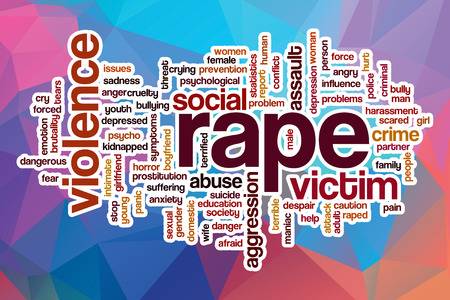From being deprived of access to equal education, work and a free reign to effectively compete with their male counterpart, Northern Nigerian women are going through steady assaults on both their future and negative public perception in respect to the roles they should play in the society.
And that is why hardly a week passes without the gory news of women being abused and denied the trappings of what the modern world has provided for the humanity making the headlines.
Figuratively, there are three major domestic abuses women are subjected to, and the society is not willing to do anything about them because the inherent problems are deep-rooted, has been accepted as the norm and regarded as unimportant and not problems that are worthy of public debate.
Firstly, spousal rape and the assault that comes with it. Last week, a short divorce note purportedly written in Hausa by an angry man went viral on social media as a result of the way he boasted of beating her aggressively just because the lady refused to have sex with him. The divorce note has brought to light how the mainstream society see this culture of beating wives as normal seeming to forget that a person should not expect cooperation and sexual consent from a lady he assaults on daily basis. The most disappointing development is the abusers virtually face no consequences for their behaviors.
Secondly, women vacillate between the challenges of being allowed to attend schools to the difficulty of being allowed to go to school or work, be empowered enough to work and contribute to their financially struggling households. The situation is tenser if women are married. I have seen a lot of married women whose husband asked them to choose between going to work and loosing their marriages or giving up on their education or career and staying put at home.
Zainab Sarki ins one of such women, whose husband first threatened her with divorce in a desperate bid to dissuade her from going back to school. As a resolute and ambitious woman, she opted to walk away, go to university and seven years after, she is about to complete her master’s degree. “I would never have been able to actualize my dream if I decided to stay.” She said while sharing her experience. “It is quite challenging to lose custody of your kids, but I was able to overcome the challenges and move on, and thank God, I have a more fulfilling and financially more rewarding life than staying with a wrong person who will not allow me to grow and be myself.”
This now brings us to the plight of divorced women, which is the third.
It is a well-known fact that many uneducated women who are suffering from mental health, are victims of futuristic uncertainty. They are made to believe marriage is everything in life without which a woman’s life is non-existent.
Nurudden Ibrahim, an expert on mental health in Gombe added that “Once they lose their marriage, they either lose the custody of their kids, or they are allowed to take them without any emotional or financial support they need to cater for them. They worry about going back to their family house where they would most likely not be welcome alone much less with their children, worry about who will marry them after having advanced in age and bearing multiple children, worry about where the next meals for the kids will be coming from”, adding that these worries alone, are more than enough to make women mentally unstable.
These among other challenges facing women in northern Nigeria are nothing compared to the plights of educated women struggling to fight off these social maladies. It is challenging or even dangerous for women to campaign against the gaping inequality in the region because people will likely interpret it as a direct attack on Islam because women according to them are naturally and religiously inferior to men.
As the world continues to change faster than the speed of sound, Nigeria is among a few countries on earth where women are pitiably subjected to these kinds of inequality and abuses. For us to effectively compete with the rest of world, Nigeria needs to give more rooms for women to prove their mettle. Let us criminalize child marriage, give women unfettered access to education and job opportunities, enact laws that hand sever punishments to people who sexually and physically abuse women. With these improvements in place, we can hope that Nigeria can be great again.





















